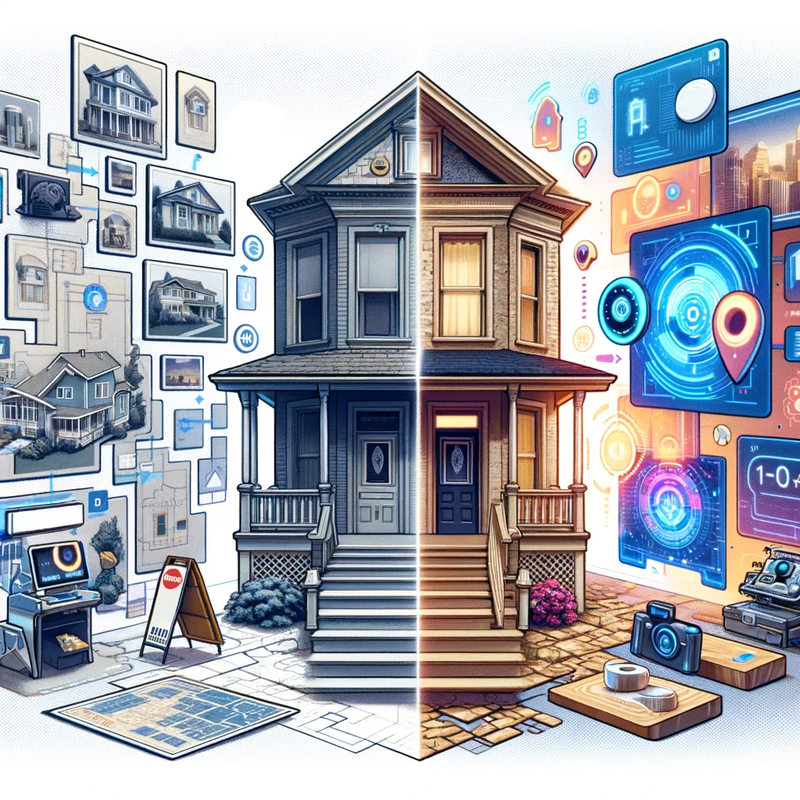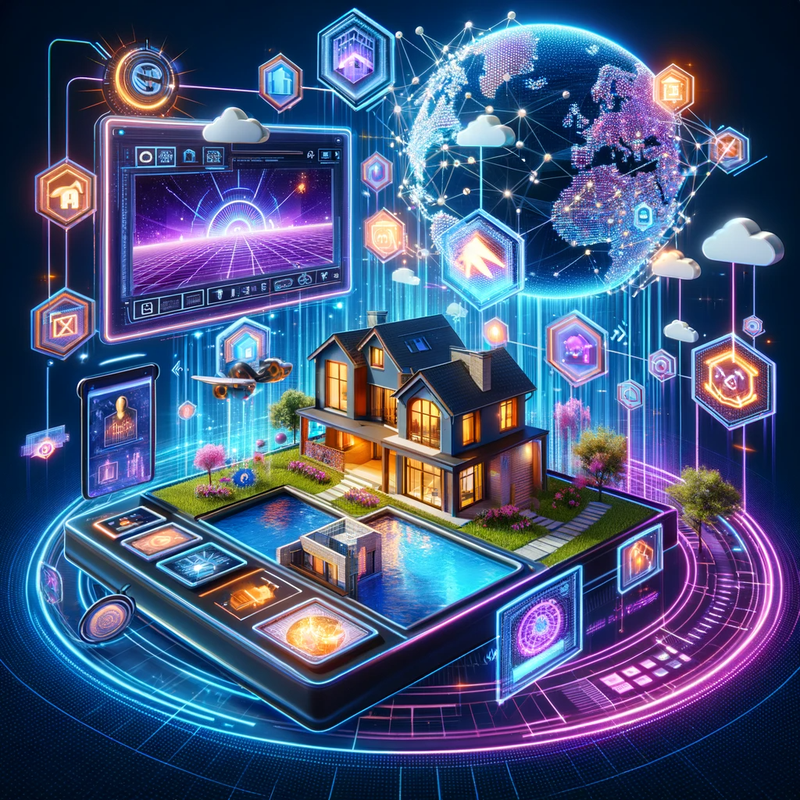AI-Driven Virtual Property Tours: Transforming Real Estate Marketing
The real estate industry has long relied on traditional property marketing methods, including photographs, floor plans, and open houses, to showcase homes to potential buyers. However, as technology advances, a new era of real estate marketing is dawning, driven by the power of Artificial Intelligence (AI). AI-powered 3D architectural animations are revolutionizing the way properties are presented, offering immersive and interactive virtual property tours that provide buyers with an unparalleled experience. In this article, we delve into how AI-driven virtual property tours reshape the real estate industry and transform how properties are marketed to prospective buyers.
The Traditional Real Estate Marketing Challenge

Traditional real estate marketing methods have limitations that can hinder the effectiveness of property sales:
- Limited Imagination: Two-dimensional photographs and flat floor plans can only provide a limited understanding of the property, making it challenging for potential buyers to envision the space as their future home.
- Inefficiency: Coordinating open houses and property visits can be time-consuming and costly for both sellers and real estate agents.
- Geographical Constraints: Buyers interested in properties in different cities or countries face significant travel expenses and time commitments when exploring potential homes.
- Lack of Personalization: Traditional marketing methods often lack personalization, making it difficult for sellers to tailor their presentations to individual buyers' preferences and needs.
AI-Powered Virtual Property Tours: A Game Changer

AI-powered virtual property tours are changing the landscape of real estate marketing in several transformative ways:
- Immersive 3D Environments: AI technology allows for the creation of immersive 3D environments that provide a realistic representation of the property. Potential buyers can virtually walk through the property, exploring every room and space.
- Interactivity: Virtual tours are interactive, allowing users to control their exploration. They can choose where to go, what to look at, and even interact with objects within the virtual space.
- Realistic Visualization: AI-driven animations create highly detailed and photorealistic representations of properties, giving potential buyers a sense of being physically present in the space.
- 360-Degree Views: Virtual tours often include 360-degree views, enabling users to look around in all directions, simulating the experience of standing within the property.
- Accessibility: Virtual tours are accessible from anywhere with an internet connection, eliminating geographical constraints. This is especially valuable for international buyers.
- Personalization: AI algorithms can personalize virtual tours based on user preferences, showing relevant features and amenities that match the buyer's criteria.
- Time and Cost Savings: Virtual property tours reduce the need for physical visits and open houses, saving time and resources for both sellers and buyers.
- Global Reach: Virtual tours can be easily shared and distributed online, reaching a global audience of potential buyers.
- Matterport's Immersive 3D Tours: Matterport, a technology company, offers a platform for creating immersive 3D tours of properties. Real estate agents and sellers can use Matterport's cameras to scan the interior of a property, generating a detailed 3D model that can be explored online. These tours have become popular since the COVID-19 pandemic limited physical property visits.
- Zillow's AI-Powered Home Tours: Zillow, a leading real estate marketplace, has integrated AI-powered virtual tours into its listings. Users can take self-guided tours of properties listed on Zillow's platform, exploring rooms, outdoor spaces, and amenities at their own pace.
- Virtual Reality (VR) Property Tours: Some real estate agencies are taking virtual tours to the next level by offering VR experiences. Prospective buyers can use VR headsets to immerse themselves in a virtual version of the property, getting a truly immersive feel for the space.
- International Property Sales: AI-driven virtual property tours have facilitated international property sales. Buyers from different countries can explore and make informed decisions about properties in regions they may not have been able to visit in person.
- Privacy Concerns: Virtual tours provide detailed views of the property, potentially revealing personal items or information that sellers may want to keep private.
- Data Security: Virtual tour platforms collect data about users' interactions. Ensuring the security and privacy of this data is critical.
- Digital Divide: Not all potential buyers have access to the technology required for virtual property tours, potentially excluding some demographics.
- Depersonalization: The personal touch of in-person interactions can be lost in virtual tours. Some buyers may miss the opportunity to connect with real estate agents and sellers.
Case Studies: AI-Driven Virtual Property Tours in Action
To illustrate the impact of AI-driven virtual property tours, let's explore a few case studies:
Challenges and Ethical Considerations

While AI-driven virtual property tours offer many advantages, they also raise certain challenges and ethical considerations:
Conclusion
AI-driven virtual property tours significantly transform the real estate industry's marketing landscape. These immersive and interactive experiences provide potential buyers with a compelling way to explore properties from the comfort of their homes, eliminating geographical barriers and saving time and resources. As technology continues to advance, virtual property tours are likely to become a standard practice in real estate marketing. However, the industry must address privacy concerns, ensure data security, and consider the accessibility of these technologies to ensure that AI-driven virtual tours benefit a broad spectrum of buyers while maintaining ethical standards.
Our Services
View some of our most popular services below.











